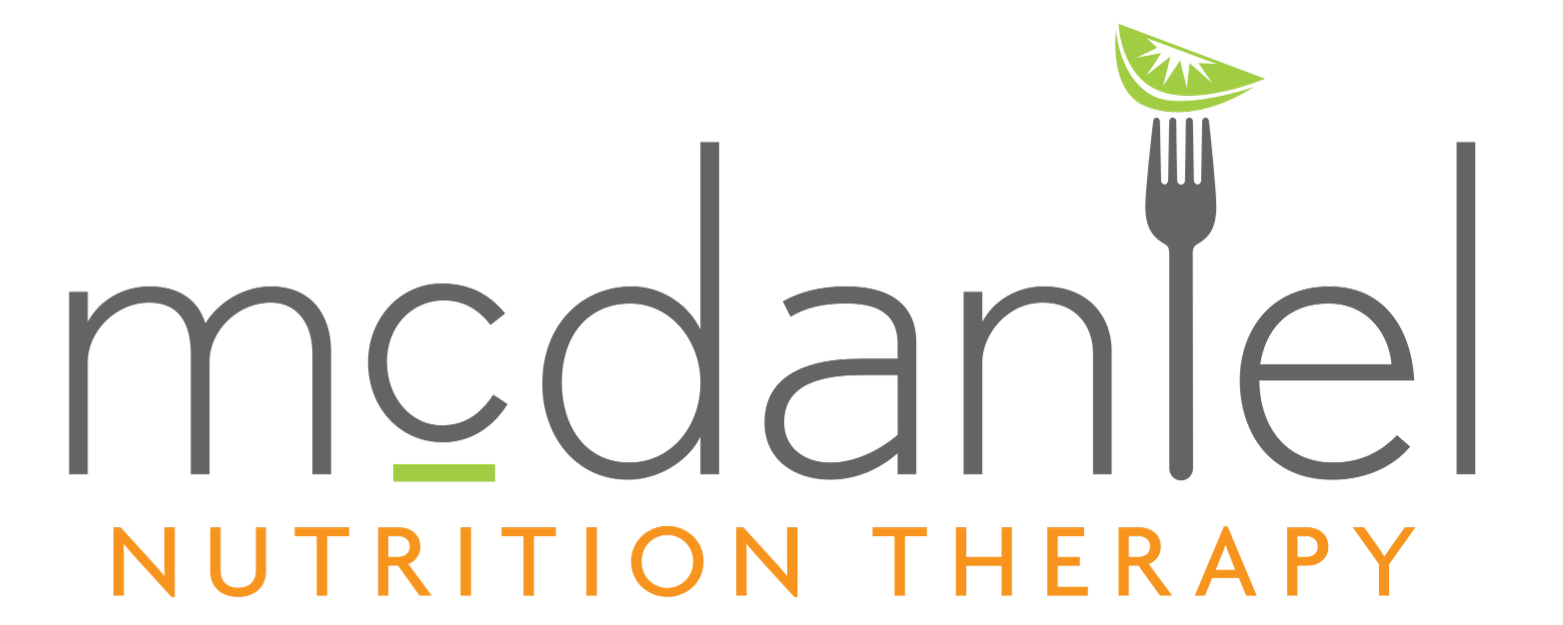Food control. The definition of control is the power to influence the course of events. At McDaniel Nutrition, we don’t love the word “control.” It feels…a little harsh or hard. But, it is a common concern we often hear in our practice. And, we hear you – feeling out “control” is real. And, it can happen in many areas of our lives.
If you’re someone who feels:

- Once you start eating something delicious, it’s hard for you to stop.
- Emotions, not hunger, sometimes drive you to eat.
- You lack the “self-discipline” that others seem to possess around “junk” food?
We have some ideas to consider about “food control.”
You aren’t eating enough
Our bodies are biologically wired to keep us alive – a great built-in feature. When our body senses restriction, it often registers it as starvation. In other words, your body thinks that you are in a famine. You might try and only eat 1,200 calories/day to lose weight quickly. However, your body will fight back to get its needs met. This is often when people experience a “binge” of some kind: feeling out of control and as if they are unable to stop eating. Often, people restrict during the day in the hopes of being healthy, and then find themselves overeating at dinner. The next day, they choose to restrict in the morning due to overeating the previous night. And, the vicious cycle continues.
You have demonized certain macronutrients/foods
Even if you aren’t restricting the AMOUNT of food you are eating, your body can still sense restriction if you are trying to avoid a specific TYPE of nutrient. For example, you might be eating enough calories but try and exhibit “self-control” by completely cutting out carbohydrates or desserts Your body will sense the restriction, and you could experience a “binge” on carbohydrate foods. Not everyone experiences binges; for some people, it could feel like not being able to keep cookies in their house without eating 20 in a row. This is not a self-discipline issue, it’s merely a biological process. All three macronutrients (carbohydrates, fats, and proteins) can fit into a healthy diet. Additionally, there is room in a normal diet for foods that simply taste good (yet offer little to no nutrition).
You are out of touch with your body
Diet culture teaches us that we can’t trust our body. It teaches us to disconnect from our natural hunger and fullness cues out of shame or judgement. Diet culture teaches us that we have to weigh out all of our food to ensure that we don’t overeat- “surely you can’t trust your body to tell you when to stop!” Many of my eating disorder clients are unable to tell whether they are hungry or full. However, when we spend time dismantling their food rules and learning to honor their cravings, their hunger and fullness cues often return.
If you’re seeing yourself in some of these food control issues, we are here for you! Use the “contact us” button on our website and one of our specialists in intuitive eating and/or eating disorders can help you reconnect with you and support a healthier relationship with food.
Check out other posts about Intuitive Eating

